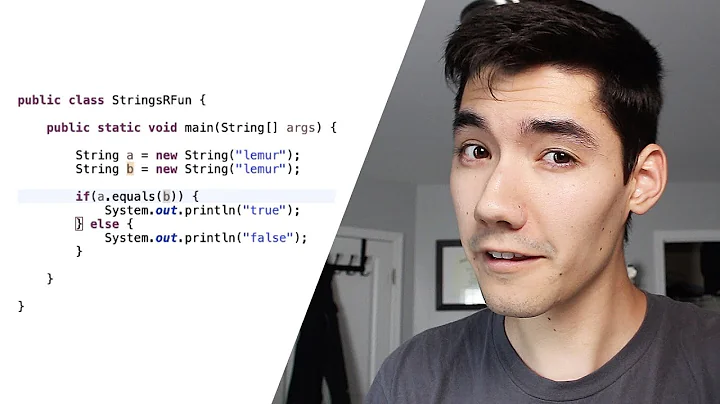The 3 different equals
Solution 1
You have = the assignment operator, == the 'equal' comparison operator and === the 'identical' comparison operator.
$a = $b Assign Sets $a to be equal to $b.
$a == $b Equal TRUE if $a is equal to $b.
$a === $b Identical TRUE if $a is equal to $b, and they are of the same type. (introduced in PHP 4)
For more info on the need for == and ===, and situations to use each, look at the docs.
Solution 2
-
=is the assignment operator -
==is the comparison operator (checks if two variables have equal values) -
===is the identical comparison operator (checks if two variables have equal values and are of the same type).
Solution 3
= assignment operator
== checks if two variables have the same value
=== checks if two variables have the same value AND if their types are the same
Solution 4
The = operator assigns the value to a variable $six = 6; value 6 is assigned to variable $six
== operator check if the value of both variables is equal and mostly used in conditions like if statements
$a = 2;
$b = 2;
if ($a == $b) {
echo both variables have the same value;
}
=== operator similar to == (check if the value equals) and also check if both of same data type
$a = 2;
$b = "2";
if ($a === $b) {
echo "both variable have same value and of same data type";
} else {
echo 'both variable is either not equal or not of same data type';
}
// here $a is of type int whereas $b is of type string. So here the output
Related videos on Youtube
Strawberry
I want to learn industry practices and apply them to my projects to make myself successful
Updated on June 04, 2020Comments
-
Strawberry almost 4 years
What is the difference between
=,==, and===?I think using one equal sign is to declare a variable while two equal signs are for a comparison condition and lastly three equal signs are for comparing values of declared variables.
-
InfantPro'Aravind' over 14 yearscheck out the example ... I have posted it would clarify more things ..
-
lucaferrario almost 11 yearsFor advanced PHP users, knowing the difference between == and === and asking themself "is it faster to compare with == or with === when I'm sure that both the operands are the same type?", please look at my benchmark script below.
-
 Funk Forty Niner almost 8 years@Strawberry I feel the question's tag should also include the javascript tag since it also applies to that language.
Funk Forty Niner almost 8 years@Strawberry I feel the question's tag should also include the javascript tag since it also applies to that language. -
 Funk Forty Niner almost 8 years(Update): I have added the javascript tag in an edit, since there have been quite a few questions where people were using
Funk Forty Niner almost 8 years(Update): I have added the javascript tag in an edit, since there have been quite a few questions where people were using=in javascript. That doesn't only apply to PHP but other languages also. -
JJJ about 6 yearsI went ahead and deleted the JavaScript tag: all answers here are only about PHP (except the latest which is very weak), there are differences between how the languages handle it, and there is already a similar de facto canonical JavaScript question (Which equals operator (== vs ===) should be used in JavaScript comparisons?).
-
-
Phil Perry over 10 yearsAlso know about != and !== 'not' versions of the two comparison operators. Some languages use := as assignment, just to avoid this kind of confusion.
-
gnarf over 10 yearsMicrobenchmarks like this are not very reliable. It is also highly unlikely that you'd ever want to worry about
==or===as the cause of your performance problem. IMO: It's better to be strict (===) unless you explicitly want to be loose (==) about your comparisons. The number of strange edge cases i.e."5 is not a number" == 5can lead to wacky bugs.===never suffers from this problem. -
stloc over 8 yearswhen I compare two identical datetime, I have false result, why ? example : sandbox.onlinephpfunctions.com/code/…
-
Andrea over 8 years@stloc,
===with objects tells you if they are the same object, not if they have the same content. -
lucaferrario over 8 yearsMy test was to tell programmers that if they're choosing
===for performance reasons, they're wrong. So programmers are free to choose===or==based on logical reasons but not on performance reasons: there are different cases to prefer the one or the other and performance must not be taken into account at all. -
 mvorisek almost 6 yearsIntroduced in PHP4, funny in Y2018 ;-)
mvorisek almost 6 yearsIntroduced in PHP4, funny in Y2018 ;-)











